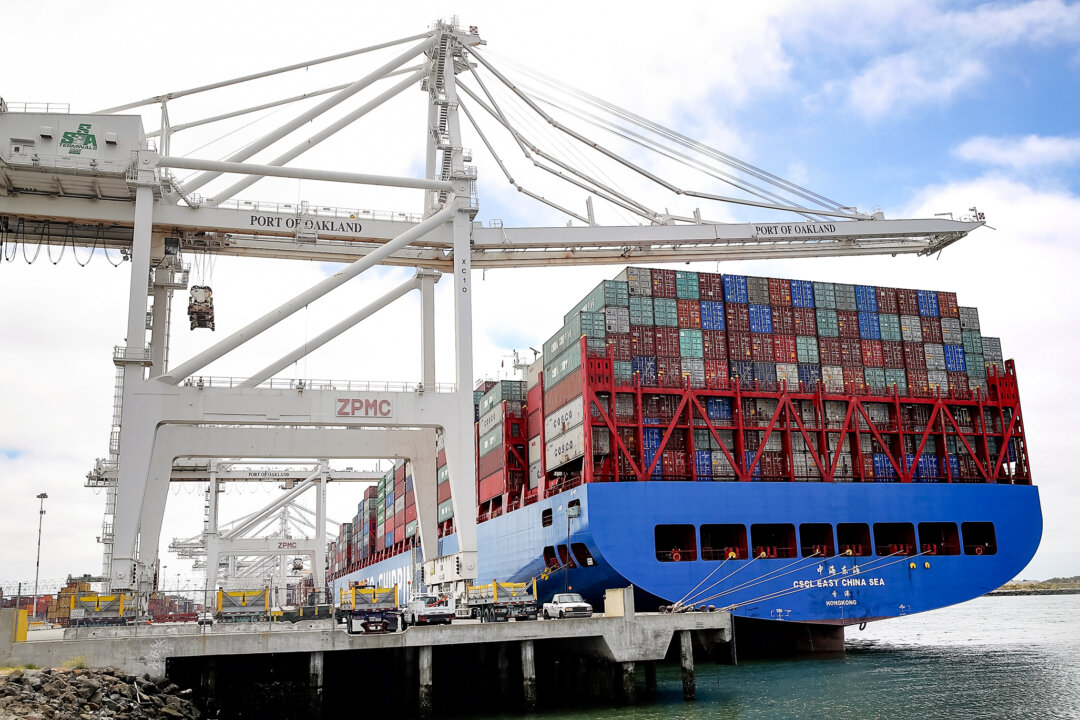By revoking China’s trade status, imports would not be subject to the United States’ standard tariff rates, which are the lowest of all WTO members.
House Select Committee on the Chinese Communist Party chairman Rep. John Moolenaar (R-Mich.) introduced a bill on Nov. 14 that would suspend normal trade relations with China, revoking the status Congress conferred on the nation in 2000 as it was about to join the World Trade Organization (WTO).
The Restoring Trade Fairness Act would revoke China’s Permanent Normal Trade Relations (PNTR) status. Sens. Tom Cotton (R-Ark.), Marco Rubio (R-Fla.), and Josh Hawley (R-Mo.) introduced the Senate version of this bill earlier this year.
PNTR is a fair trade agreement, formerly known as “most favored nation” status, and the legislation passed in 2000 negated the need for Congress to vote to renew China’s trade status as it had done annually since 1980.
The agreement slashed tariffs on Chinese imports, with lawmakers reasoning that WTO regulations would obligate China to adhere to fair market trade practices. The PNTR legislation was passed with the aim of keeping the United States competitive with China’s trade partners in Europe, and the belief that Beijing’s adherence to WTO rules would “promote reform in China” and create stability in the Asia–Pacific region.
However, Moolenaar said this has not been the case.
“The CCP [Chinese Communist Party] has taken advantage of our markets and betrayed the hopes of freedom and fair competition that were expected when its authoritarian regime was granted permanent normal trade relations more than 20 years ago,” he stated in a Nov. 14 press release.
By revoking China’s trade status, imports would not be subject to the United States’ standard tariff rates, which are the lowest of all WTO members.
The only countries the United States does not currently grant normal trade relations status are Belarus, Cuba, North Korea, and Russia.
The legislation builds upon bipartisan policies and tariffs from the past two administrations that have reset trade relations with China.
A 2018 investigation concluded that the Chinese regime was engaging in intellectual property theft, which resulted in the Trump administration implementing a series of tariffs on Chinese imports. The Biden administration continued and expanded upon those tariffs, and President-elect Donald Trump has said he will increase tariff rates on China once in office.
According to Moolenaar, China effectively lost PNTR status with the two administrations’ tariffs, but the bill codifies these changes.
The bill would “create a minimum 35 percent ad valorem (in proportion to the estimated value of the goods or transaction) tariff for non-strategic goods and a minimum 100 percent ad valorem tariff for all strategic goods,” according to the press release.
The new tariffs will be implemented gradually over five years. Revenue generated from these tariffs will be allocated to support U.S. farmers and manufacturers in the event they experience losses due to retaliation from Beijing in response to the trade legislation. Additionally, a portion of the revenue will be used to purchase munitions aimed at deterring the Chinese regime’s aggression in the Pacific.
The bill also addresses the de minimis treatment of nations with which the United States has normal trade relations. The de minimis provision allows imports valued under $800 to enter the country without duties and minimal customs inspection, and lawmakers have voiced concerns that Chinese companies have turned it into a loophole to import counterfeit products, illicit fentanyl, and products made with slave labor. Congress introduced a separate bill targeting this loophole earlier this year.
The Select Committee recommended such legislation last year, citing a United States International Trade Commission report that found that for every 1 percent increase in tariffs, Chinese imports decreased by about 2 percent and that there was diversification of U.S. manufacturing.
“Having permanent normal trade relations with China has failed our country, eroded our manufacturing base, and sent jobs to our foremost adversary,” Moolenaar stated.
“The Restoring Trade Fairness Act will … protect our national security, support supply chain resilience, and return manufacturing jobs to the U.S. and our allies.”

